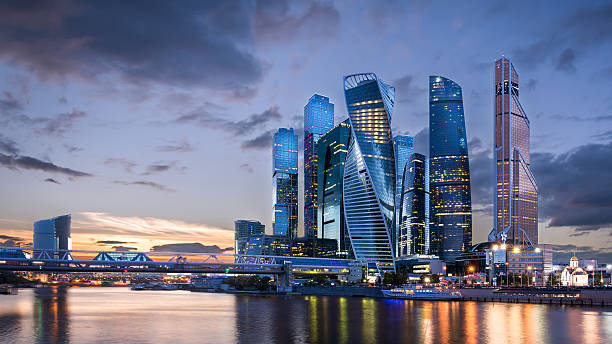G7 Finance Meet: Russia Oil Tariff
By Asmita - Sep 13, 2025
G7 finance ministers discuss imposing tariffs on countries importing Russian oil to increase pressure amid the Ukraine conflict. The focus is on limiting Russia's oil revenues to weaken its economic stability as it continues to sell oil at discounted rates. The plan may impact global energy supply chains, especially with major importers like India and China. Concerns exist about market instability and the need for affected countries to seek alternative energy sources.

Russia city via Istock
The meeting of the G7 finance ministers focused on exploring new economic measures to increase pressure on Russia. The key discussion was on imposing tariffs on countries that are still importing oil from Moscow. Western nations believe Russia is trying to maintain its economic stability during the Ukraine conflict through its energy supplies. In this context, strict controls on the oil and energy sector could limit Russia’s revenues. Special attention was given to the idea of imposing additional duties on non-European and Asian countries purchasing crude oil from Russia, making such imports less attractive. The main goal of the talks is to tighten political and economic pressure on Russia.
In this financial track meeting, the US, UK, Japan, Germany, and other members suggested that Russia’s strategy of selling oil in the global market at discounted rates is reducing the impact of European sanctions. Many developing countries have continued to purchase cheaper Russian oil due to rising energy costs. This has provided Russia with valuable foreign currency, which has supported its budget during the war. In such circumstances, the G7 strategy is to use tariffs to cut down those benefits and make cheap Russian oil a less profitable option for buyers.
The meeting also acknowledged that taking such steps would not be easy, as it could impact global energy supply chains. Several Asian countries, with India and China as major buyers, have emerged as big importers of Russian crude. Plans to impose tariffs on them could increase economic friction between the West and Asia. The European Union has already restricted imports of Russian oil and gas at its own level, but the policy has not proven fully effective on a global scale. This is why the G7 now seeks coordinated action to build pressure on countries that are not directly participating in sanctions against Moscow.
Analysts believe that if the tariff policy is implemented, affected countries will have to look for alternative energy sources. This could strengthen the role of Middle Eastern and African energy exporters. However, there are concerns about potential negative effects on the energy market, as disruption in global supply-demand balance could lead to further instability in prices. Such volatility may become particularly challenging for developing economies. On the other hand, the G7 argues that economically weakening Russia is an essential step to ensure long-term stability, which is why concrete policies in this direction are being pursued.


